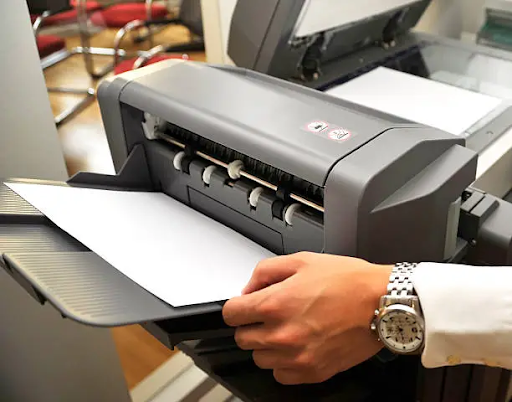Every facet of business in today’s environment is competitive, even B2B. Each function of the business needs to be operationally efficient, and that includes printing. Whether it concerns handling internal files, invoices, marketing collateral, or forms for logistics, the most suitable toner cartridges should be selected and these should support budgetary constraints and overall productivity. With the emerging trend of HP compatible toner cartridges, businesses are now able to enjoy better alternatives that help to lower costs without compromising on quality. But how do you ensure that you are getting the right product for the specific printer model you have?
This guide takes you through five important considerations that will assist your organization in selecting the best HP toner solutions, as well as pointers that concern other brands such as konica minolta toner cartridge devices.
Know the Compatibility Prerequisites of Your Printer
Having accurate information about the HP toner cartridges that are marketed as ‘compatible’ is pivotal. Not all of them will work with every single HP printer. Focusing on these details is crucial:
- The number of the printer model
- Compatibility detail of the cartridge series
- Expected page yield
- Formulation of the toner (very crucial in color printing)
Using a toner cartridge that is incompatible may cause a range of problems including operational errors, a decrease in print quality, or serious damage to the printer’s hardware. Hence, B2B procurement teams need to verify supplier compatibility charts, crossover with manufacturer guidelines meticulously.
It is noteworthy that companies dealing with other brands like konica minolta toner cartridges are facing these compatibility issues. In this regard, all industries can afford to disregard accuracy and attention to detail.
Focus on Suppliers With Track Records
With the surge of low-cost third party toner vendors, the most critical step is selecting a supplier who offers both reliability and performance. B2B buyers need to understand that this goes beyond simply looking at the dollars and cents.
- Certifications: ISO, STMC and RoHS compliance.
- Testing standards: Page yield, toner density, and environmental resistance.
- Quality assurance: Defect rates, batch consistency, and claims.
- Business references: Testimonials and case studies from peer industries.
Top suppliers have almost always provided extensive product documentation and may also offer trial cartridges or performance guarantees. While considering high volume purchases of HP compatible toner cartridges or even konica minolta toner cartridge lines, these suppliers need to be scrutinized if operational uptime is crucial for the business.
Evaluate Print Quality and Performance
For consistency and quality control management, especially within departments in larger organizations, print operations tend to be strategic. As part of procurement processes, considerations on how compatible cartridges design in comparison with OEM (Original Equipment Manufacturer) cartridges need to take into account:
- Text clarity
- Color accuracy
- Smudge resistance
- Durability over high-volume runs
Many B2B settings such as legal practices, healthcare, logistics, and finance firms require accuracy and durability in documents materials. A cartridge that appears budget-friendly can have costly consequences in reputation and presentation due to reprints required because of poor quality.
One of the most effective ways to evaluate quality is to obtain a small batch for testing purposes from your preferred supplier. For HP printer users, this practice is accepted, as does with companies sourcing other products like the konica minolta toner cartridge which, because of their quality variability, have the potential to disrupt print infrastructure.
Contemplate The Total Expenses of Owning an Item
Purchasing for business-to-business transactions, or B2B, deals with more factors than just calculating the lowest cost on a ‘per unit’ basis, rather it involves maximum return on investments. While purchasing HP compatible toner cartridges, businesses must perform a Total Cost of Ownership (TCO) evaluation which takes into consideration:
- Cartridge cost per page
- Expected page yield
- Downtime costs due to cartridge failure
- Printer maintenance or repair costs.
When examining a cartridge, it is often the case that higher upfront costs translate to better efficiency and lower operational issues, thus resulting in decreased expenditures in the long run. This principle applies to various brands of printers and their corresponding supplies, including alternatives to the konica minolta toner cartridge.
In other words, one-sentence summary is: For business buyers dealing with hp compatible toner cartridges, along with options like konica minolta toner cartridges, they need to consider not just print efficiency but also total maintenance costs over time.
Focus on Sustainability and Recycling Initiatives
Incorporating sustainability into procurement processes is becoming more popular for businesses with ESG objectives and social responsibility commitments. When developing a strategy for sourcing toner, marketing suppliers who have:
- Cartridges made from recycled or remanufactured materials
- Production with low emission
- Recycling take-back programs
- Eco-friendly packaging materials free of unnecessary packaging
Toner waste constitutes a significant environmental challenge, especially in high-volume printing settings. Working with suppliers aligned with your corporate sustainability strategies helps reduce waste while improving public perception of your company.
A good example is businesses looking for konica minolta toner cartridge replacements that use vendors with carbon-neutral shipping or closed-loop recycling programs. The same standards can and should be set for procurement for HP-compatible toner supplies.
Summary: Effective Choices Enhance Printing Operations
The process of choosing the most appropriate HP compatible toner cartridges for your business does not need to be a daunting task. By concentrating on factors such as compatibility and grade, supplier reputation, total cost of ownership (TCO), and sustainability goals, you can achieve economic and operational efficiency for the business.
A comprehensive toner strategy, whether you’re running a print hub or dealing with a few departments, has the potential to save you thousands in cost while providing exceptional print quality. Most discussion considerations here would also apply to other types of toner such as the konica minolta toner cartridge series.
In order to keep their competitive advantage and aid their profits, businesses need to stay up-to-date in the ever-evolving world of printing technology.















